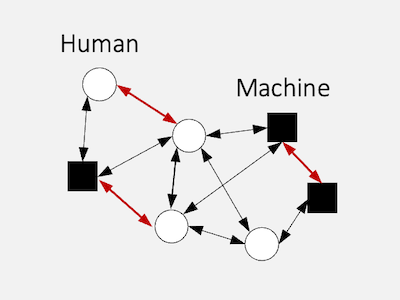From fake social media accounts and generative-AI chatbots to trading algorithms and self-driving vehicles, robots, bots, and algorithms are proliferating and permeating our communication channels, social interactions, economic transactions, and transportation arteries. Networks of multiple interdependent and interacting humans and intelligent machines constitute complex social systems where the collective outcomes cannot be deduced from either human or machine behavior alone. Under this paradigm, Taha Yasseri, Niccolo Pescetelli, Tobias Werner, and I review recent research and identify general dynamics and patterns in situations of competition, coordination, cooperation, contagion, and collective decision-making, with context-rich examples from high-frequency trading markets, a social media platform, an open-collaboration community, and a discussion forum. To ensure more robust and resilient human-machine communities, we require a new sociology of humans and machines. Researchers should study these communities using complex-system methods, engineers should explicitly design AI for human-machine and machine-machine interactions, and regulators should govern the ecological diversity and social co-development of humans and machines.

The paper was published in Nature Human Behaviour under the title “A new sociology of humans and machines.” A free version is available as a preprint on arXiv.
